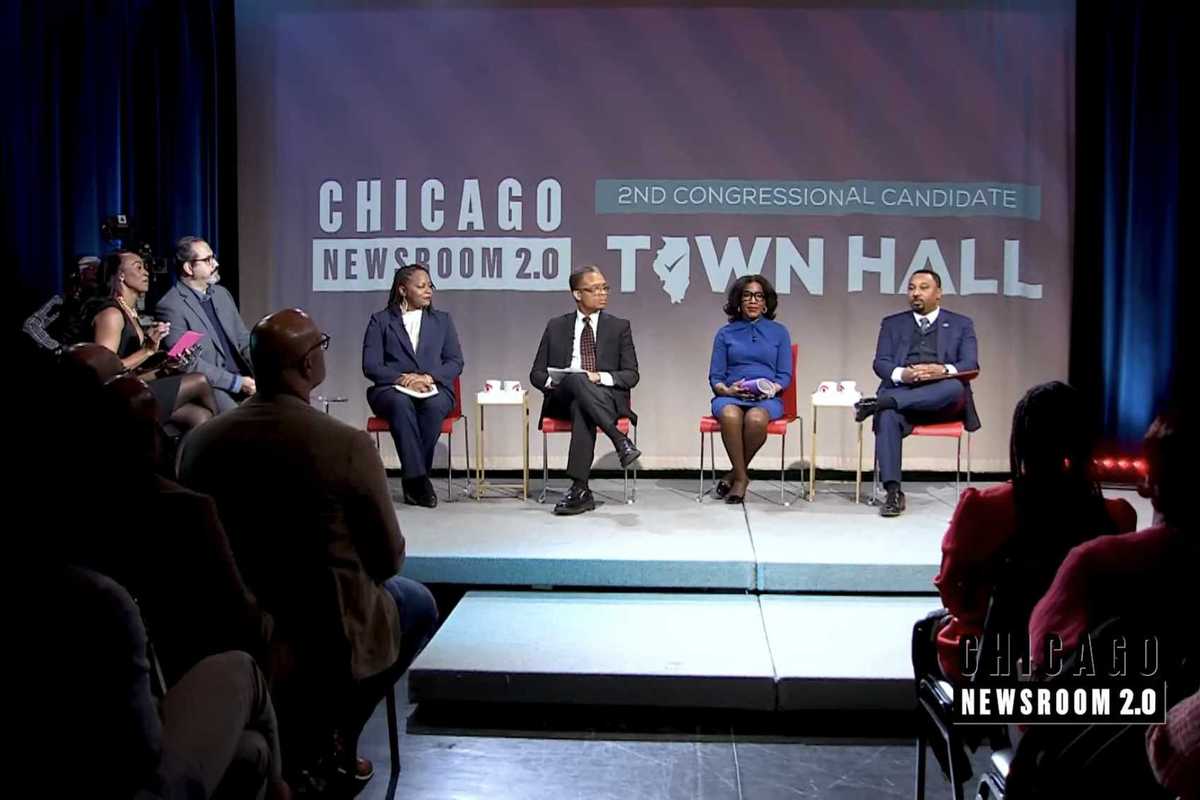Messinger is the founder of Digital Citizen, a media engagement nonprofit that connects Americans to their leaders, each other, and the world.
Our deeply divided nation agrees on one thing, at least: Your facts and my facts are irrevocably different.
This is the news problem from hell: a profound division in how the media portray what is true. The problem isn’t new – it’s baked into the U.S. Constitution – but today it’s worse. Online platforms pretending to carry news array their wares before me; “us” or “them” are the only choices. Toxic cable channels boost ratings by selling me biased reporting and fabricated facts.
I know deep down I am an idiot to bite, but I bite.
Then there’s the hyperpartisanship. I live in an all-encompassing info-bubble that always shows me how I am right and those others are wrong. And put a cherry on top of this poisonous sundae: A lethal dose of extremist lies from the far right fringe is creeping into accepted political discourse. Add it up and the role of news reporting in this democracy is under threat.
I’ve been looking for signs of hope lately, searching for ways to forge a path out of this media hellscape. There are some hopeful developments: People are beginning to recognize how serious the threat is to our democratic republic. Numerous civic groups that belong to the Bridge Alliance (which owns The Fulcrum) are making headway in helping people dismantle animosity between neighbors, in de-demonizing “the other.” Our nonprofit, Internews Interactive (InterAct) is part of this movement.
Understandably, these organizations often keep an arm’s length from news media, that disagreeable place where the sausage of public opinion is made. But if the problems with news reporting aren’t solved, every effort to find consensus faces a nearly unwinnable battle.
Regaining trust
InterAct is focused on how media may provide solutions. First, can news media earn back the public trust they squandered by jumping onto partisan bandwagons when that was the avenue towards greater profits?
One of the best known U.S. news channels, CNN, is about to answer this question. CNN drifted into liberal editorializing territory during the Trump years, looking increasingly like the left-leaning MSNBC and mirroring the right-leaning Fox News. That strategy added viewers who were horrified by Trump. According to The New York Times:
But leaders of CNN’s new corporate parent, Warner Bros. Discovery, have suggested that they want the network’s programming to have more straight news reporting and fewer opinionated takes from hosts.
Some fear the network is simply flipping to the conservative side, but according to The Washington Post, Chris Licht, the new chairman of CNN “has told CNN staff that he hopes to see more Republican politicians making guest appearances. ... But the network has pushed back on suggestions that Licht was specifically trying to curry favor with Republicans, saying he just wants to make CNN ‘a place for fair and respectful dialogue, analysis and debate.’ ... Licht said he wants to help regain the trust that many people have lost in media, by ‘fearlessly speaking truth to power, challenging the status quo, questioning ‘group-think’ and educating viewers.’”
This is encouraging for people who despaired as CNN became just another partisan, sensation-mongering machine. Let’s hope the changes hold no matter what comes next.
Building connections
Other ways the news industry is attempting to tackle this hellish problem are less sensational but may be more significant. One approach focuses on building strong ties between reporters and their communities. The premier practitioner of this approach is Trusting News. It’s website explains:
“At Trusting News, we identify things news audiences don’t understand about how journalism works and use engagement and transparency strategies to rebuild trust. We look for opportunities to demonstrate credibility [to audiences] by explaining news processes, coverage goals and journalism ethics.”
We are working with Trusting News on a project that is also trying something new: turning the news problem on its head. What if reporters become ambassadors who explain their home community to others, and interpret other points of view for their own audiences? We call this News Ambassadors because the idea is to help in understanding without sacrificing factual reporting.
Reporters from Columbia University in New York and the University of Missouri held community meetings in two very different localities: the Flatbush section of Brooklyn, N.Y., which is more than 50 percent Black and where more than 70 percent of voters went for Joe Biden; and Moberly, Mo., which is over 50 percent white, and gave 70 percent of its support to Donald Trump in the last election. Next, the reporters will create radio stories that explain to the other community how “we” have dealt with a difficult national issue – such as abortion or guns.
Journalist Amanda Ripley is leading another approach to reconnecting reporters to their audiences. It's called “Complicating the Narratives,” and she wrote a book on the topic. As she recently explained at the Solutions Journalism Network blog:
“The idea is to revive complexity in a time of false simplicity. ... Usually, reporters do the opposite. We cut the quotes that don’t fit our narrative. ... The problem is that, in a time of high conflict, coherence is bad journalism, bordering on malpractice.”
The article continues:
“One of the most well-studied biases in the human portfolio is confirmation bias — our nasty habit of believing news that confirms our pre-existing narratives and dismissing everything else. ... [C]onfirmation bias is the Kryptonite of traditional journalism.
“So one way to gently counter confirmation bias is to create a little cognitive ease. ... If you’re doing a story about the scientific evidence for the safety of vaccines .. . use sources that surprise [news consumers] — ideally ones from their tribe.
Cognitive ease also comes from a feeling of hope. Uncomfortable information that could generate fear ... is more palatable to people if it comes with a side of specific actions that people can take. ... [F]ear without a sense of agency backfires — leading people to respond with denial, avoidance and disgust.”
Presenting news this way should help the public gain insight — but this raises the question: Are people ready to jump off their own partisan bandwagons? There are, after all, news consumers as well as news producers, and an equally urgent need for the public to see that theirs is not the only correct viewpoint. News consumers must somehow get beyond today’s simplistic approach to right and wrong, and they must learn to discern truth from lies.
Just as literacy has been essential to being a good citizen, today’s citizens must learn a new kind of literacy. They must become media literate. To fact-check claims that now are routinely accepted as truth, to access tools that discern faked media from the real thing. They must be able to smell when something seems fishy; to be skeptical if stories fit too neatly into their own biases. They must recognize they have biases in the first place. Changing the news consumer is, perhaps, more difficult than changing the news.
But there are positive developments on this front too. Illinois is the first state to institute mandatory media literacy courses for all high school students. As Yonty Friesem of Columbia College Chicago told NPR:
“The idea is to teach about asking questions of how is it constructed, this message? Who is behind it? What's going on here? And how does it affect me and society? And what's my role in how I'm using media? So it can be in a science experiment, but it can be also in art. It can be talking about civics in social science class.”
Taken together, a more literate public, reporters who see themselves as part of their communities, and news outlets that look for unbiased ways to report could make a difference. As the old reporter’s phrase goes, “Time will tell.” It can’t happen soon enough.



















